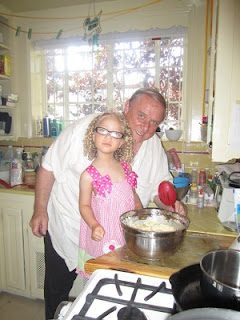 |
 |
 |
|
RCC students celebrate Club Fest 2012 and foster new friendships.
Enclosed you will find a book by my pastor. As I reflected on my experiences at CCM,
I thought of your leadership.
I then became curious and delved into the book. Here is what Dr. Ireland wrote in THE SKIN YOU LIVE IN:
Personal relationships are the bedrock to all
aspects of social life. They are also the gateway to the corporate
board room, the police force, and every place of influence in all
aspects of society.
As I read this, a light came on. This is the thesis of RCC’s signature course, PDA – Pluralism and Diversity in America. More than twenty years ago, our very creative faculty realized that part of our college’s “job” was to help our students learn to live in an ever expanding and diverse America. If our great country hopes to live in peace and to prosper, we all must understand and respect our differences whether they be race, gender, ethnicity, class or sexual orientation. I also realized the importance of understanding and embracing diversity when I reviewed 2010 Census data as we developed long-term enrollment projections.
The 2010 US Census data reports the following:
The overwhelming majority (97 percent) of the total U.S. population reported only one race in 2010. This group totaled 299.7 million. Of these, the largest group reported white alone (223.6 million), accounting for 72 percent of all people living in the United States. The black or African-American population totaled 38.9 million and represented 13 percent of the total population.
Approximately 14.7 million people (about 5 percent of all respondents) identified their race as Asian alone. There were 2.9 million respondents who indicated American Indian and Alaska Native alone (0.9 percent). The smallest major race group was Native Hawaiian and Other Pacific Islander alone (0.5 million), which represented 0.2 percent of the total population. The remainder of respondents who reported only one race, 19.1 million people (6 percent of all respondents), were classified as "some other race" alone.
- US Census Bureau
And while we help our students to understand and respect the different “skins in which we live,” in PDA we also provide them with numerous informal opportunities to “build friendships across cultural lines.” I reflected on this as I thought about last week’s Club Fest where our fifty clubs set up tables in the Academic Quad to recruit members for a wide range of co-curricular/ extra-curricular activities. While some clubs celebrate ethnicity, a large number focus on a particular issue or passion. Any student, regardless of race, gender, ethnicity, class or sexual orientation, can join a club and can find his or her passion or experience new opportunities. In reviewing the following list, one sees the wide range of interests and the ever expanding and diverse student body.
| Active Minds | Art Club | Alpha Beta Gama |
| Asian Club | Beta Beta Beta | Black Student Union |
| Campus Players | Chess Club | Chemistry Club |
| Criminal Justice Club | Christian Fellowship | Dance Club |
| Economics Club | Environmental Club | Fashion Club |
| Filipinos United | First Inkling | Gay Straight Alliance |
| Habitat for Humanity | Hillel | Hospitality Club |
| Haitian Club | Hip-Hop Culture Club | Improvisational Club |
| Impulse Magazine | International Club | Italian Club |
| L.U.N.A. | Music Appreciation | Organic Gardening |
| Mug Action | Peer Mentoring | Phi Theta Kappa |
| Occupational Therapy | RCC Counseling | RCC Dream Team |
| Political Science | Rotaract | SAB Student Activities Board |
| Robotics Club | Sigma Chi Eta | Speech and Debate |
| SGA Student Government Assoc. | Student Ambassadors | Student Nurses |
| S.T.A.R.S. | Transfer Club | Video Game and Anime |
| Teachers of Tomorrow | Women in Computing |
And so the goals of Dr. Ireland’s book are also the goals that students need to adopt if they are to help build a society of peace and prosperity. These goals are as follows: “overcome the pain of prejudice, form cross-cultural relationships, and live in an ever diverse society.”
AUTHOR’S NOTES:
Early in my college career, I was dubbed a “WASP” by my professor. I was enrolled in a social psychology course whose thesis was to help understand “the worth and dignity of every individual in theory and in fact.” And I was indeed a WASP: A white, a blond-haired, blue- eyed Anglo Saxon Protestant, an Episcopalian. Over the years my life has changed significantly. In this picture my three-year-old granddaughter, Annie, and I are preparing “latkes - potato pancakes” for the Rosh Hashanah dinner we celebrated with her parents, her new twin brother and sister and her four grandparents. And while these latkes would not pass muster at a New York Jewish Deli, Annie likes them and, to me, they are familiar, not as latkes, but as Southern fried Paula Deanish potato pancakes. Whatever they are to the eater, they are really delicious. And over the years, because of my cross-cultural experiences, I am more comfortable in the “skin in which I live.”



Comments
Post a Comment